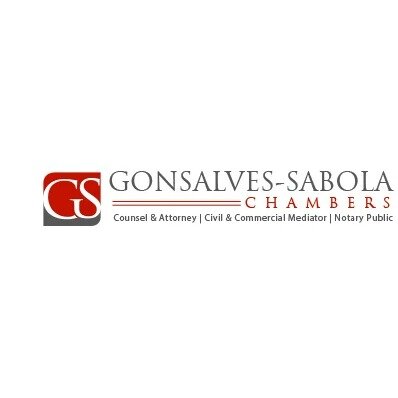Best Probate Lawyers in Bahamas
Share your needs with us, get contacted by law firms.
Free. Takes 2 min.
Or refine your search by selecting a city:
List of the best lawyers in Bahamas
About Probate Law in Bahamas
Probate law in the Bahamas refers to the legal process by which a deceased person's will is validated, and their estate is settled according to the laws of the Bahamas. This process involves identifying the deceased's assets, paying any debts and taxes, and distributing the remaining assets to the rightful beneficiaries. If there is no will, Bahamian law provides for the distribution of assets under the rules of intestacy.
Why You May Need a Lawyer
There are several situations where seeking legal advice in the field of probate might be beneficial. Common scenarios include disputes over the validity of a will, complex estates involving numerous assets or liabilities, and situations where the deceased did not leave a will. Additionally, if the estate involves significant business interests or international assets, navigating these complexities often requires the expertise of a qualified probate lawyer. Executors and beneficiaries might also seek legal help to ensure the estate is managed and distributed in accordance with Bahamian law.
Local Laws Overview
The probate process in the Bahamas is governed by the Probate and Administration of Estates Act. The key aspects of local probate law include the requirement for executors to apply for a Grant of Probate (if there is a will) or Letters of Administration (if there isn't a will). The process involves collecting the deceased’s assets, settling debts, and distributing the remainder to the rightful heirs. Executors must ensure that all legal and tax obligations are fulfilled. In the absence of a will, the intestacy rules will guide the distribution of assets, which often involves closer relatives inheriting over more distant ones.
Frequently Asked Questions
What is probate?
Probate is the legal process through which a deceased person’s will is validated, and their estate is administered and distributed according to the terms of the will or, if no will exists, according to the laws of intestacy.
How long does the probate process take in the Bahamas?
The duration can vary, but generally, the probate process may take several months to over a year, depending on the complexity of the estate and whether there are any disputes or complications.
Do I need to probate a will if the deceased’s assets are held jointly?
If assets are held jointly with a right of survivorship, they typically pass directly to the surviving joint holder and may not require probate. However, legal advice should be sought to confirm this.
Can a will be contested in the Bahamas?
Yes, beneficiaries or interested parties can contest a will if they believe it is invalid due to reasons such as lack of capacity, undue influence, or improper execution.
What happens if the deceased did not leave a will?
If the deceased did not leave a will, their estate will be distributed according to the intestacy laws of the Bahamas, which prioritizes heirs such as the spouse and children.
How are foreign assets handled in Bahamian probate?
If the deceased owned foreign assets, those assets might be subject to the probate laws of the country in which they are located. Bahamian law may require that such assets are reported and correctly managed as part of the estate.
Who can apply for probate?
Typically, the executor named in the will applies for probate. If no executor is named or no will exists, a close relative often applies for Letters of Administration to manage the estate.
What taxes are applicable to a deceased’s estate in the Bahamas?
Currently, there is no inheritance tax in the Bahamas. However, other taxes or fees might apply, so it is advised to consult with a legal professional.
Can a probate lawyer assist with international probate issues?
Yes, a probate lawyer in the Bahamas can provide guidance and support for estates that involve international assets or where the deceased had connections to other jurisdictions.
Is it necessary for beneficiaries to be present in the Bahamas during probate?
Generally, beneficiaries do not need to be present in the Bahamas, but they will need to provide certain documentation and may need to liaise with the executor or legal representatives.
Additional Resources
For further assistance, individuals may contact the Supreme Court of the Bahamas, where probate matters are handled. The Bahamas Bar Association can also provide a list of qualified probate lawyers. Additionally, the Registrar General's Department is a valuable resource for obtaining official documents and guidance related to estate administration.
Next Steps
If you need legal assistance with probate in the Bahamas, begin by consulting with a qualified probate lawyer who is knowledgeable about local laws and can guide you through the process. Gather all relevant documents related to the deceased’s assets and liabilities. Ensure to understand the legal obligations and timeline involved in the probate process. Taking these actions early can help facilitate a smoother and more efficient administration of the estate.
Lawzana helps you find the best lawyers and law firms in Bahamas through a curated and pre-screened list of qualified legal professionals. Our platform offers rankings and detailed profiles of attorneys and law firms, allowing you to compare based on practice areas, including Probate, experience, and client feedback.
Each profile includes a description of the firm's areas of practice, client reviews, team members and partners, year of establishment, spoken languages, office locations, contact information, social media presence, and any published articles or resources. Most firms on our platform speak English and are experienced in both local and international legal matters.
Get a quote from top-rated law firms in Bahamas — quickly, securely, and without unnecessary hassle.
Disclaimer:
The information provided on this page is for general informational purposes only and does not constitute legal advice. While we strive to ensure the accuracy and relevance of the content, legal information may change over time, and interpretations of the law can vary. You should always consult with a qualified legal professional for advice specific to your situation.
We disclaim all liability for actions taken or not taken based on the content of this page. If you believe any information is incorrect or outdated, please contact us, and we will review and update it where appropriate.
Browse probate law firms by city in Bahamas
Refine your search by selecting a city.

















